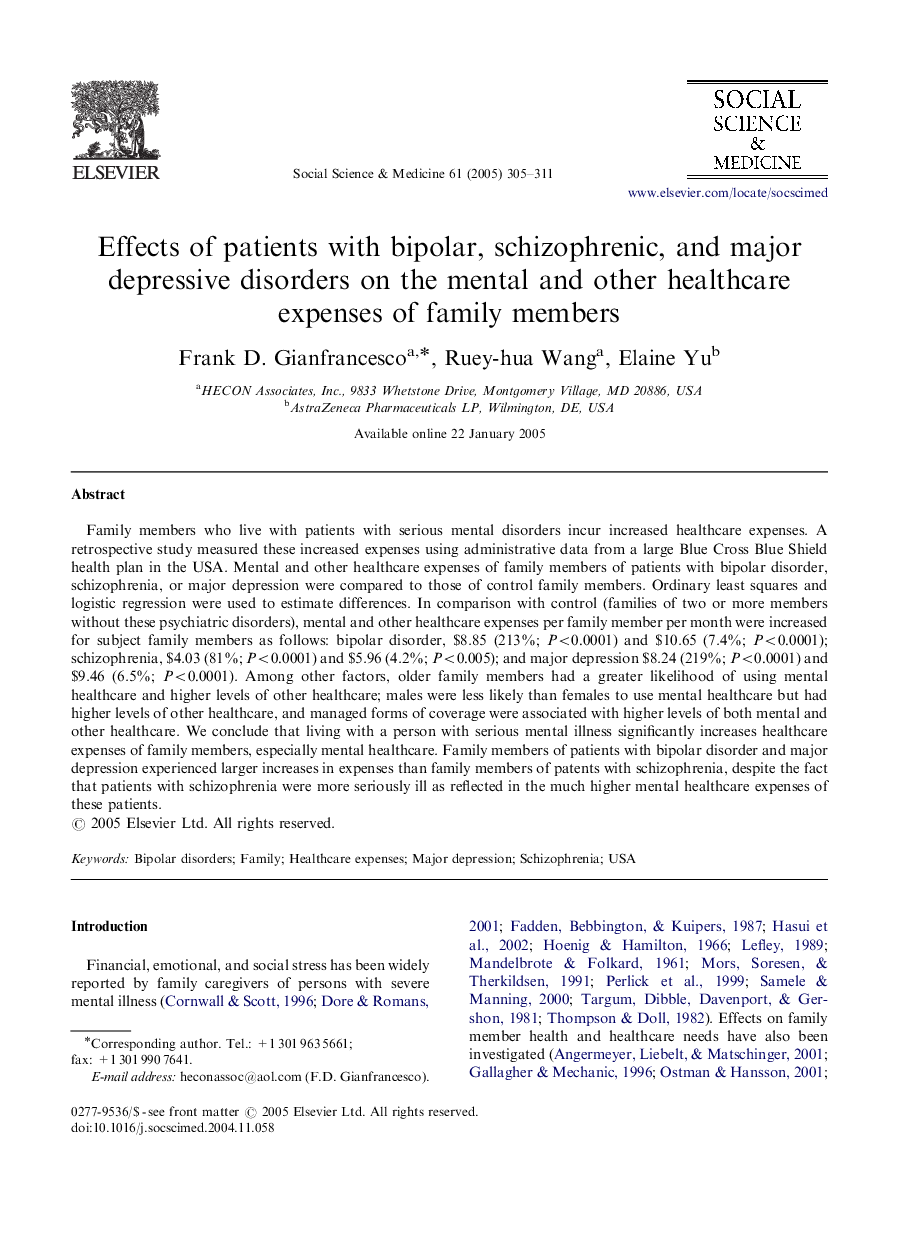| Article ID | Journal | Published Year | Pages | File Type |
|---|---|---|---|---|
| 10472352 | Social Science & Medicine | 2005 | 7 Pages |
Abstract
Family members who live with patients with serious mental disorders incur increased healthcare expenses. A retrospective study measured these increased expenses using administrative data from a large Blue Cross Blue Shield health plan in the USA. Mental and other healthcare expenses of family members of patients with bipolar disorder, schizophrenia, or major depression were compared to those of control family members. Ordinary least squares and logistic regression were used to estimate differences. In comparison with control (families of two or more members without these psychiatric disorders), mental and other healthcare expenses per family member per month were increased for subject family members as follows: bipolar disorder, $8.85 (213%; P<0.0001) and $10.65 (7.4%; P<0.0001); schizophrenia, $4.03 (81%; P<0.0001) and $5.96 (4.2%; P<0.005); and major depression $8.24 (219%; P<0.0001) and $9.46 (6.5%; P<0.0001). Among other factors, older family members had a greater likelihood of using mental healthcare and higher levels of other healthcare; males were less likely than females to use mental healthcare but had higher levels of other healthcare, and managed forms of coverage were associated with higher levels of both mental and other healthcare. We conclude that living with a person with serious mental illness significantly increases healthcare expenses of family members, especially mental healthcare. Family members of patients with bipolar disorder and major depression experienced larger increases in expenses than family members of patents with schizophrenia, despite the fact that patients with schizophrenia were more seriously ill as reflected in the much higher mental healthcare expenses of these patients.
Related Topics
Health Sciences
Medicine and Dentistry
Public Health and Health Policy
Authors
Frank D. Gianfrancesco, Ruey-hua Wang, Elaine Yu,
